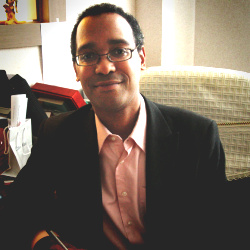 The year is 2166 and the world has changed drastically since the early 21st century. In the 2020s war spread across the globe with great loss of life and destruction of the environment. The governments of the world ultimately came together to save the planet and humanity, and in the tradition of the ancient Olympic games, the art and sport of war was strongly upheld as a substitute for waging real life-and-death war.
The year is 2166 and the world has changed drastically since the early 21st century. In the 2020s war spread across the globe with great loss of life and destruction of the environment. The governments of the world ultimately came together to save the planet and humanity, and in the tradition of the ancient Olympic games, the art and sport of war was strongly upheld as a substitute for waging real life-and-death war.Simulated combat, from hand-to-hand to full-scale naval, ground, and space battles, became the foundation of diplomacy and international relations. The physical, mental, and spiritual talents necessary to become skilled in the strategies and tactics of martial arts became key criteria for people’s academic progress, job applications and promotions, and even entrepreneurial success. Traditional Korean martial arts became the global standard for excellence and eventually the Korean language became the lingua franca.
Brazil stands out as a prime example of how individual nations have changed. During the mid-21st century, the country had achieved fantastic success in soccer, leading the world in most international competitions. However, within Brazil, competition mania reached ugly levels, with hooligans bringing violence to the streets regularly. Brazilian society, over time, developed a strict code of social behavior, and it became rude and distasteful for Brazilians to publically compete with each other. However, thanks to the Code, hooliganism disappeared and the streets became much safer.
Of course the Code affected many other aspects of Brazilian society, including the valuable study of martial arts. It became distasteful for a Brazilians to display their martial arts skills, either strong or weak, in front of other Brazilians. Therefore Brazilians began avoiding training with each other in martial arts. This remains true even though the link between Korean martial arts and success in life stays very clear.
Still, from a young age Brazilians enthusiastically study Korean martial arts from textbooks, computers, and holograms, but they avoid interaction with each other. Interestingly, showing martial arts skills to non-Brazilians does not break the Code and many Brazilians spend great amounts of money and effort to take and make such opportunities.
The taboo associated with breaking the Code and displaying skills among Brazilians has slowed the development of Brazilian martial arts and consequentially academic, economic, and other progress as well. At a recent conference in Rio on the history of Korean strategy, scholars from around the world came together to discuss ways to improve Brazil’s position in the world. Although everybody at the conference spoke Korean well, most of the Brazilians avoided the language if they thought other Brazilians could hear them because that would break the Code. If Brazilian scholars did give a presentation in Korean, they just read their paper from the booklet the audience members also had and ignored their bored faces.
By Peter A. Edwards
Prof., Keimyung International College
Prof., Keimyung International College








